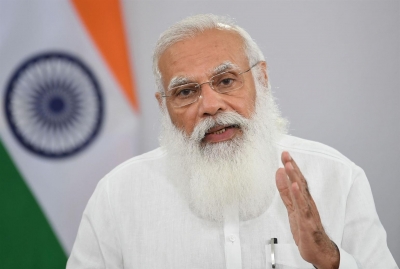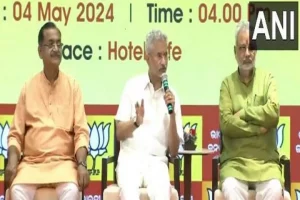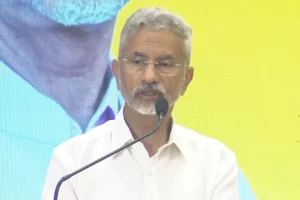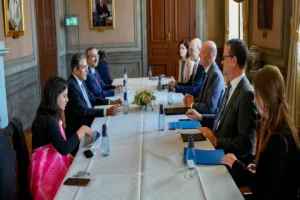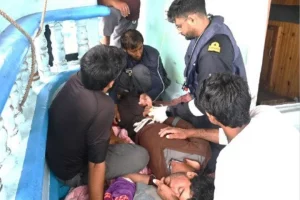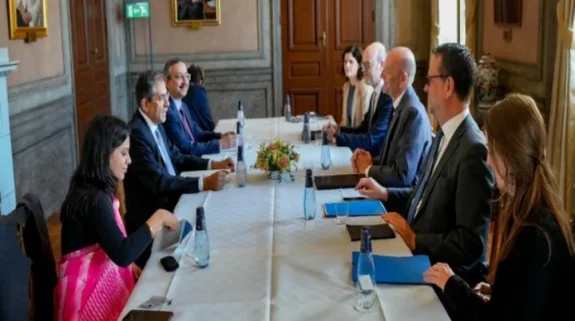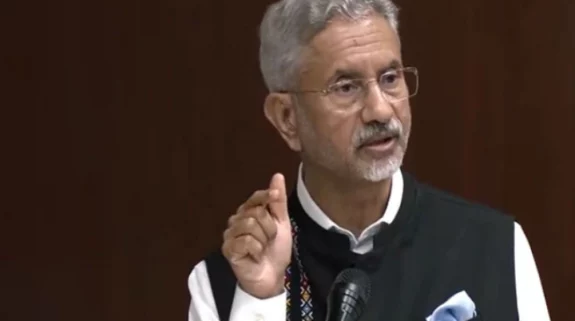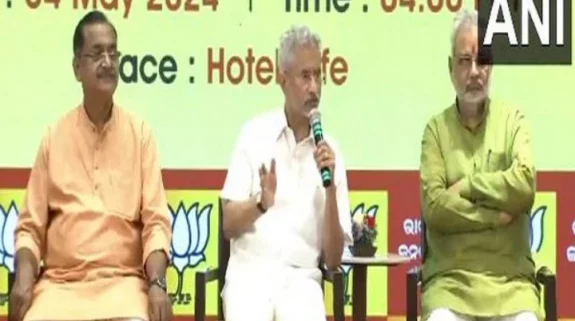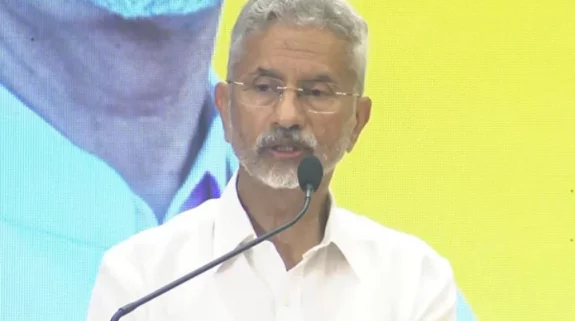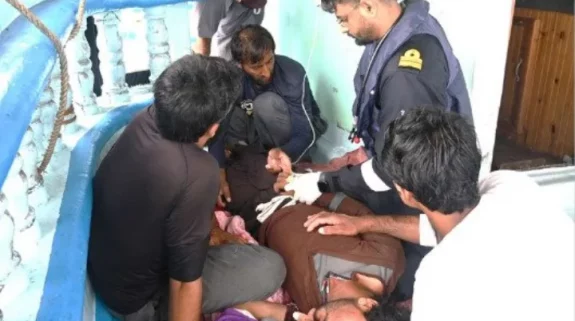Prime Minister Narendra Modi, in his address at the UN Security Council debate on Monday, made out a strong case for the peaceful settlement of maritime disputes between countries and the free flow of maritime trade through international sea lanes.
The global leaders present at the meeting included Russian President Vladmir Putin, the Prime Minister of Vietnam, the President of Kenya and President of the African Union.
PM Modi pointed out that "the ocean is our common heritage and the sea routes are the lifeline of international trade. But today our shared maritime heritage is facing many challenges as sea routes are being misused for piracy and terrorism. There are maritime disputes between many countries. And climate change and natural disasters are also subjects related to maritime domain,” he added
PM Modi enunciated “five basic principles” that the global leadership needed to keep in mind for chalking out “a roadmap to protect and use our shared maritime heritage.”
Principle 1: We should remove barriers from legitimate maritime trade. The prosperity of all of us is dependent on the active flow of maritime trade. The bottlenecks in this can be a challenge for the entire global economy. Through this vision, we want to create an inclusive structure of maritime security in our area. This vision is of a Safe, Secure and Stable Maritime domain. It is also necessary for free maritime trade, that we fully respect the rights of each other's sailors.
Second principle: The settlement of maritime disputes should be peaceful and only on the basis of international law only. This is very important for mutual trust and confidence. It is only through this that we can ensure global peace and stability. With this understanding and maturity, India has resolved its maritime boundary with its neighbour Bangladesh.
The third principle: We should face natural disasters and maritime threats created by non-state actors together. India has taken several steps to enhance regional cooperation on this subject. The Prime Minister said, India has been the first responder in maritime disasters related to cyclone, tsunami and pollution. The Indian Navy has been patrolling in the Indian Ocean since 2008 to prevent piracy. India's White Shipping Information Fusion Center is increasing shared maritime domain awareness in our region.
Fourth principle: We have to preserve the maritime environment and maritime resources. As we know, the oceans have a direct impact on the climate. And therefore, we have to keep our maritime environment free from pollution like plastics and oil spills. And take joint steps against over-fishing and marine poaching. At the same time, we should also increase cooperation in ocean science. India has launched an ambitious "Deep Ocean Mission". We have also taken several initiatives to promote sustainable fishing.
Fifth Principle: We should encourage responsible maritime connectivity. It is clear that infrastructure creation is necessary to increase maritime trade. But, the fiscal sustainability and absorption capacity of the countries have to be kept in mind in the development of such infrastructure projects. For this we should make proper global norms and standards. PM Modi also said that in today's context, India has defined the vision of SAGAR – Security and Growth for All in the Region – on the basis of this open and inclusive ethos. Through this vision, the country wants to create an inclusive structure of maritime security.






